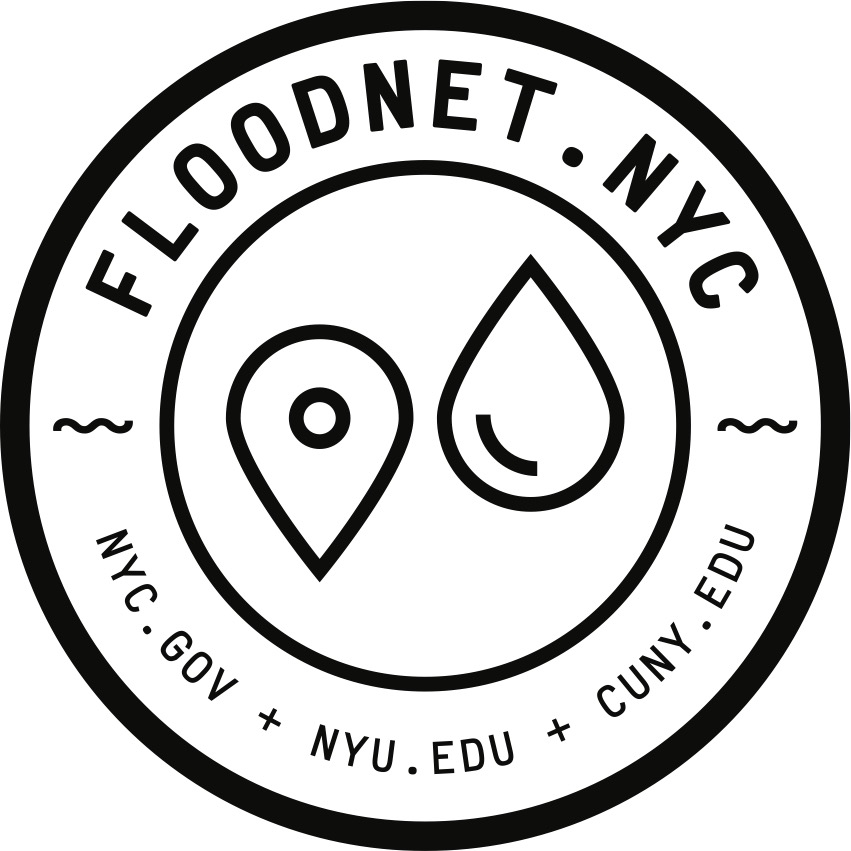
Community Action
We think of action as a dynamic, reciprocal, and accountable process of skill building, colearning, and co-production between academic researchers and community partners. FloodNet efforts toward community action seek to build self-efficacy in partners (e.g., residents and resident-led groups) to work toward flood resilience in the way they define and deem appropriate. FloodNet's role in this space is primarily to ENCOURAGE and CREATE opportunities for collaboration with partners to continue conversations about flood data and support community-building efforts.
Goals:
-
To contribute our data, learnings, and evidence-based practices to various flood-related efforts and climate justice initiatives around the City (including through collaboration with partners like the Community Flood Watch project.)
Tools and Resources
COMMUNITY WORKSHOP SERIES
The Community Workshops Series, co-led by FloodNet’s Community Engagement team and community partners, invites the FloodNet team to facilitate three modules in partner communities:
Community Voice
This module takes participants through PhotoVoice training to expand community-led documentation, conversation, and qualitative data collection on flooding and flood impacts in their neighborhoods. Learnings from NYC’s Flood Watch program inform this module and participants are encouraged to
continue engagement after the workshop with MyCoast, a NYS tool to report photo, time, depth, location and impacts on flooding.
Data & Storytelling
This module engages community participants in a co-learning experience that supports community-led data analysis. Community participants are led through learning activities that facilitate their ability to interpret flood sensor data and communicate their findings through creative storytelling. The stories both highlight participants’ lived experiences with flooding in their area and offer qualitative information to contextualize flood sensor data.
Sensors & Sensing
This module, developed in collaboration with CUNY ASRC’s Community Sensor Lab, aims to engage community participants with the flood sensor technology and encourage participant reflection on how flooding impacts their neighborhoods and their health. Community participants are encouraged to use flood sensors, and FloodNet project logic, to explore how flooding may be connected to other relevant community issues, think critically about the scope of flood efforts in NYC, and create their own community-based action strategies in response to flooding.
FloodNet FAQs
This document, available in 14 languages, gives more in-depth information about the project.

FLYERS AND POSTERS
These flyers can be used as handouts or informational materials, and are available in the top 12 languages spoken in NYC.
Neighborhood One-Pagers
These FloodNet outputs provide a detailed snapshot of a specific neighborhood. This tool is designed to inform and educate residents, community leaders, and stakeholders about the unique characteristics and challenges of an area, particularly concerning flooding. Beyond just presenting data, the one-pager is created to support communities in understanding and documenting the specific flooding risks they face.

Flooding and Public Health Impact Info Sheets
These FloodNet outputs provide educational materials on the public health impacts of flooding in FloodNet sensor-deployed communities. This tool is designed to inform and educate residents, community leaders, and stakeholders about the ways that flooding is also connected to the various community priorities and sociological issues New Yorkers face. The theme of each one-pager is selected based on our continued learns from on-going community engagement events, workshops, and convenings.




